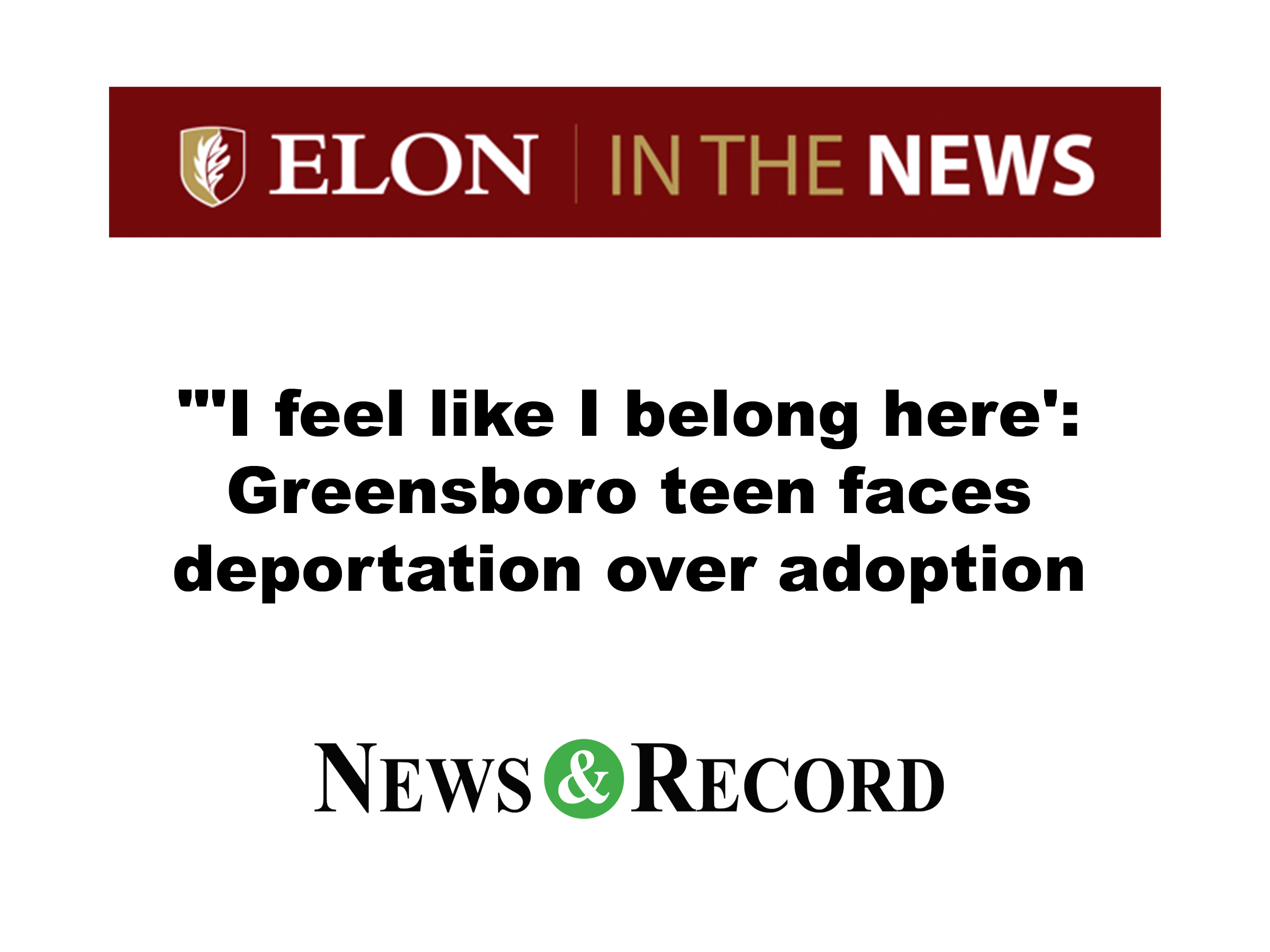Katherine Reynolds, interim director of the Humanitarian Immigration Law Clinic, provided background on immigration law - and how some overseas adoptions may be problematic for children once they reach the age of 18 - for a story on a Greensboro teen in fear of deportation.
An Elon Law expert in immigration provided legal information for a story in the News & Record of Greensboro, North Carolina, detailing the plight of a city teenager now facing possible deportation.
Katherine Reynolds, interim director of the Humanitarian Immigration Law Clinic, discussed the nuances of immigration law with reporter Nancy McLaughlin for a March 29 story on the Greensboro teen whose adoption in infancy is no longer recognized by the United States government.
Reynolds shared with the newspaper how “there are requirements that sometimes get overlooked that can cause immigrants problems later on. Refugees, for example, are required by U.S. immigration law to apply for a green card even for children. She has seen situations where parents have put off applying for the children because of the cost, and it becomes an issue later on.”
Before joining the Elon Law faculty, Reynolds was the Immigration Legal Services Program Coordinator at a refugee resettlement agency in Greensboro where she assisted refugees with adjustment of status and helped more than 150 lawful permanent residents to naturalize through a USCIS Citizenship and Integration Grant.
She was a supervising attorney at a refugee legal aid agency in Cairo, Egypt for three years, serving as director in her final year and managing an international staff of interpreters, attorneys, and volunteer legal advocates who provided assistance in obtaining UNHCR protection, refugee status, and resettlement for refugees and asylum-seekers from Sudan, Somalia, Ethiopia, Eritrea, Iraq, and Syria.



